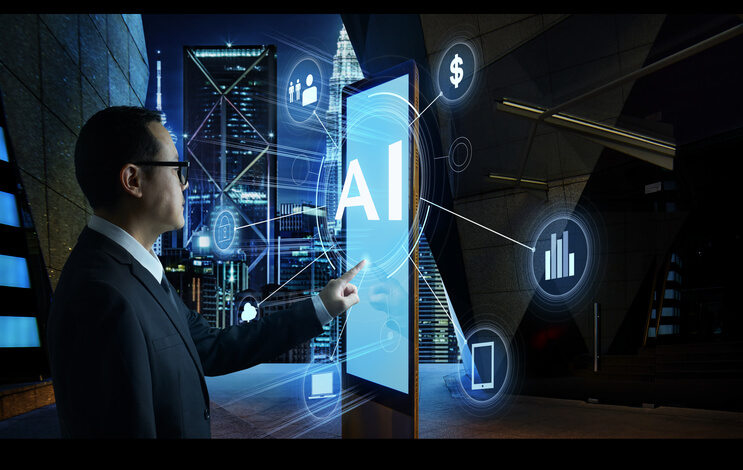The idea of what man-made artificial intelligence might be capable of has captivated people’s minds for a very long time now. Some signs of it have manifested throughout the 20th century; however, only in recent decades have we truly started to bear the fruits of AI technology in various ways. The hedge fund industry is one of quite a few that has recently experienced a rise in AI usage. Therefore, the current and upcoming years’ AI and hedge fund trends are rightly seen as tightly interlinked.
Table of Contents
Artificial intelligence arriving in hedge funds
Investing has always been about calculating and making predictions based on data. And the more data there is, the more complicated the calculations needed for trustworthy forecasts will get.
Luckily, data and computing technology go hand in hand, as both fuel the growth and development in each other. The first steps towards artificial intelligence were precisely the computing machines, firstly made for simple calculations and then getting more and more sophisticated all the way to today’s powerful computers.
AI technology has been introduced in hedge funds firstly as something that is able to provide assistance in building mathematical investing models. As AI is capable of handling large amounts of data, it helps to ensure that various types of information are accounted for when making the model. This leads to better-informed investment decisions and more accurate market forecasts.
Thus, AI-based tools arrived at the world of finance much the same way as computers did – to help in dealing with numbers and information. However, as we move forward and technology is getting developed, hedge funds are able to utilize AI in many different or interlinked ways. These ways form the trends in the hedge fund industry that are important right now and making their mark for the future.
The major trends
The current trends in the hedge fund industry are mostly tightly related to data. This, in turn, makes it very much related to artificial intelligence since, as noted above, dealing with data is what AI is for.
One major trend in hedge funds is machine learning, which is part of artificial intelligence. Machine learning refers to algorithms capable of learning to solve new problems independently, that is, without additional work of the human programmers. This is achieved through training the algorithms with data. The more they work on data, the more they can find new solutions to the posed problems.
Naturally, such an ability is incredibly valuable in investing, as it raises efficiency and improves problem-solving. Thus, this trend is going to continue strong in the hedge fund industry as well as something AI developers will keep working on.
Another notable trend that links hedge funds to AI is data-driven recruitment. This refers to hiring, which is done mostly by AI picking the candidates for the open positions by analyzing the data available for them. As AI is able to quickly check all the available talent pool and make unbiased decisions, data-driven recruitment is growing in popularity in firms across all industries. And hedge funds are certainly no exception.
The great results of data-driven hiring are also increasing enthusiasm for the possibilities of delegating more management decisions to artificial intelligence. This may include managing employees’ time for maximum efficiency, as well as making decisions about which clients and when should be contacted.
Another interesting trend in hedge funds that may not seem AI-related at first is what is known as environmental, social, and governance investing, or ESG for short. Also known as sustainable investing, ESG refers to investment strategies that take into account the long-term effects of the investments on the environment and society.
As with any other hedge fund trend, AI relates to ESG through data. To make well-founded predictions about the long-term effects from such diverse perspectives as environmental and social, one has to deal with a lot of various data. Additionally, a very sophisticated analysis is needed, which is where, once again, machine learning can come in handy.
Thus, even with the hedge fund trends that at first sight may not seem directly related to AI, it is usually possible to find a link to it by looking just a little bit closer.
What to expect in the future?
Finally, if we look to the future of AI adoption in business and finance, we have a lot to be excited about. There are also some concerns about the legal regulations that will need to be solved by legislators in order to make the human-AI interaction as smooth as possible.
However, in businesses, the main trend of adopting AI will be learning to combine humans’ ingenuity and emotional intellect with the mechanical, fast-calculating intelligence of computers. This and other tasks of implementing AI will continue to be among the main focuses all across financial industries, including the hedge fund industry.

